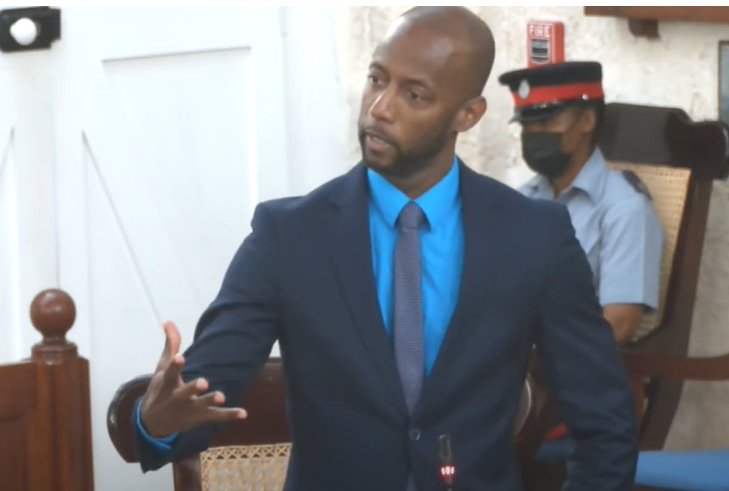Some of the government’s budget measures have not only failed to lower the cost of living but will increase it come the start of the fiscal year on April 1, an opposition senator has contended.
As the Senate debate on the Appropriation Bill continued on Wednesday, Senator Ryan Walters urged the government to give consumers ease in the rising cost of living given that the price social compact with the business community “did not give them the effect that they anticipated”.
He said: “Prices continue to rise. What has the government put in place in this coming year to slow these prices down? Is it good enough to just say that we have something on the table and we going to discuss it? The last compact ended in September, so we are six months on. When we deal with cost of living and pricing especially, it has to be a proactive state of mind that the government is operating in, not a reactive state because once the prices start to go up, they’re not going to come back down.
“So to tell us. . . that there are going to be ongoing discussions about what the private sector can do or what the government can work with the private sector on is not good enough. It tells me that it was not thought out and that there’s no clear indication to the consumers, for working people in this country who are feeling the pinch the most, to give them any comfort when April 1 comes.”
Walters contended that inflation is something residents have to live with but it can be controlled by governments: “So it cannot be done with a three-month measure and a six-month measure. It has been tackled forcefully, fairly and comprehensively in a sustainable way. So [I am urging] the government to do something about this. It is not too late.”
The business executive pointed out that the government had promised in its 2018 election manifesto to take another look at the Value Added Tax (VAT) rate but that had yet to materialise.
“So, if in 2018, there was a promise by this government to reduce Value Added Tax to the consumers . . . why hasn’t the government then made steps to reduce the VAT? There has to be some consideration given the current economic environment that we are in. So I urge the government to stick to their promise,” he said.
On electricity rates, Prime Minister Mia Mottley announced that the proposed VAT rate on the first 250 kilowatts of electricity used in households will move from 17.5 per cent to 10 per cent. But Senator Walters said that for the last two years, the government had allowed households using less than 250 kilowatts of usage per month to pay a rate of 7.5 per cent VAT.
“This adjustment will mean that it is an increase in cost to the consumer come April 1st. It is not a cost of living savings for us to have to pay our bills . . . . I mean, cuhdear, Sir, couldn’t you [the government] at least extend the courtesy of the 7.5 per cent? There’s nothing else on the table and the only initiative was electricity savings and social compact discussion. It’s not good enough,” he said, adding that the government had also put the country on notice for an increase in natural gas rates in the coming month.
“I will implore the government to put a mechanism in place to reduce and slow the rate of increases in the country. . . . [give] relief to the high gas prices at the pump. Six months we have not had a change and the problem is that the price at the pump right now is very high, the second highest [在] $4.24 . . . . We need answers for that. And if something was missed in error, give us the savings, please. Pass it. . . let it trickle down.”
The opposition senator also called for a phasing out of what he described as “some of the onerous tax” burdening Barbadians.
“Put all the workers first, give them a guarantee of a minimum income, not a minimum wage rate. We need to create an environment, family-focused, that will also put some extra income back in the pockets so that we can spend and circulate in the economy,” he said.
(FW)
帖子 Budget measures ‘will raise cost of living’ 首先出現在 今日巴巴多斯.
由 Echo RSS插件 通過 代碼革命.


最近評論